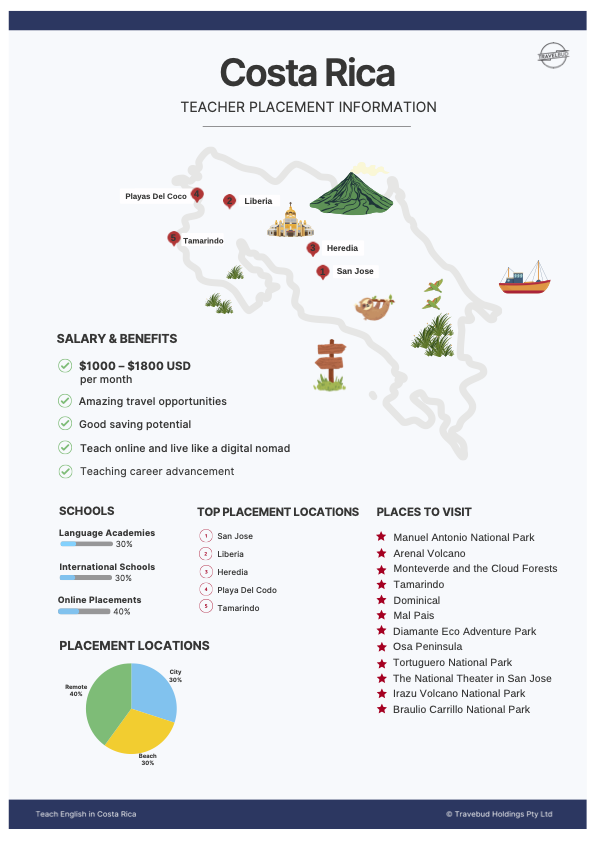Tropical climate with two main seasons: dry (Dec–Apr) and rainy (May–Nov). Coastal regions are warm year-round while mountain towns are cooler.

Choosing Your Program
We help you select the perfect teaching destination and program.
You: Fill out your application.

Guaranteed Job Placement
We secure your job placement at one of our partner schools.
You: Sign your contract.

Visa & Paperwork Support
We guide you through the visa application and help with all required documents.
You: Submit your documents and pay fees.

TEFL Course (if applicable)
We arrange your internationally recognized TEFL course.
You: Complete your TEFL course.

Pre-Departure Support
We provide everything you need to prepare for your journey.
You: Pack your bags.

Airport Pickup & Arrival Assistance
We’ll be there to meet you when you arrive at the airport.
You: Show up.
%20(5).png?width=60&height=60&name=2%2c400%2B%20Participants%20(Instagram%20Post)%20(5).png)
Ongoing Support
We continue to support you while you’re abroad, from housing to emergencies.
You: Enjoy your experience and teach with confidence!
-1.png?width=150&height=84&name=2%2c400%2B%20Participants%20(2)-1.png)









